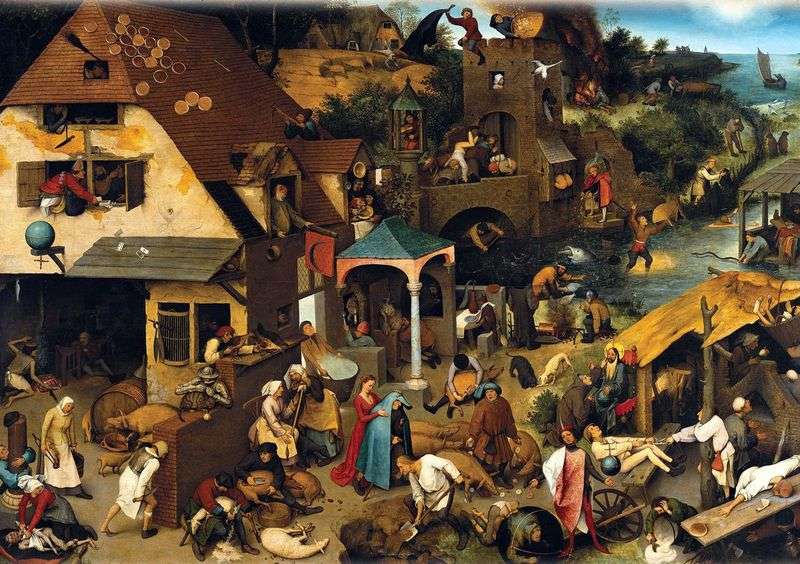
The picture also has a number of other names – “Flemish proverbs”, “The world is upside down”.
The picture is a kind of encyclopedia of popular sayings of the 16th century, which Brueghel illustrates literally, turning the image into a parade of absurd and absurd occupations, to which the characters of the picture are betrayed with enviable perseverance and patience.
In fact, every action has a very specific symbolic meaning: as a sign of adultery, a woman puts a blue cloak on her shoulders; The poor man can not make ends meet, as he can not, stretched out on the table, grab two rolls with his hands; the blasphemous monk tries to attach a false beard to Christ; The hapless peasant tries to punch his head against the wall. The whole world is put upside down, like an inverted globe above the entrance to a rural dwelling.
The meaning of some proverbs echoes with modern ones, for example, with such things as “beating your head against a wall,” “leading your nose,” or “sitting down between two chairs.” However, there are a number of sayings that have now come out of everyday use and thus have lost relevance, so deciphering them is sometimes not easy.
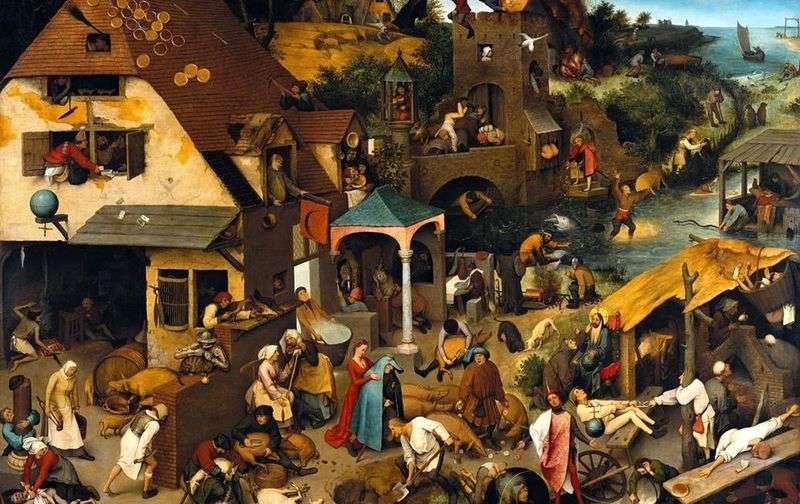 Dutch proverbs by Peter Brueghel
Dutch proverbs by Peter Brueghel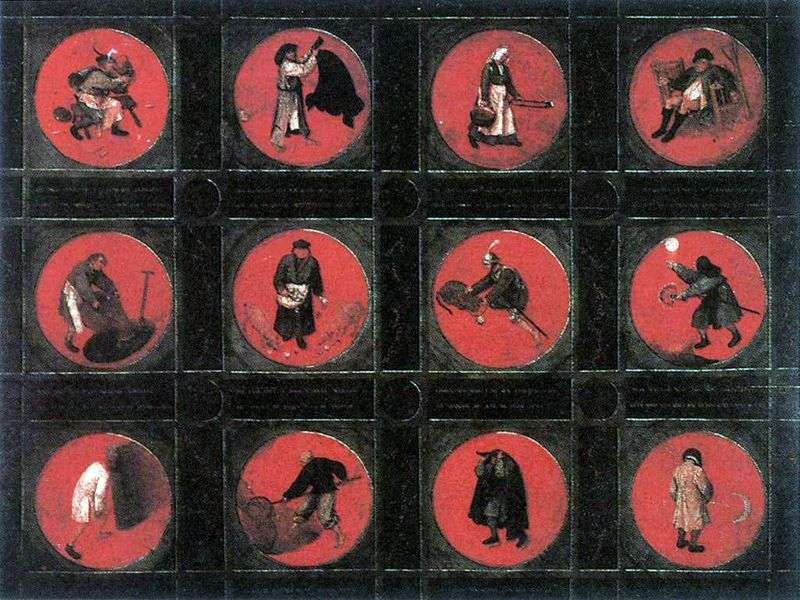 Twelve Proverbs by Peter Brueghel
Twelve Proverbs by Peter Brueghel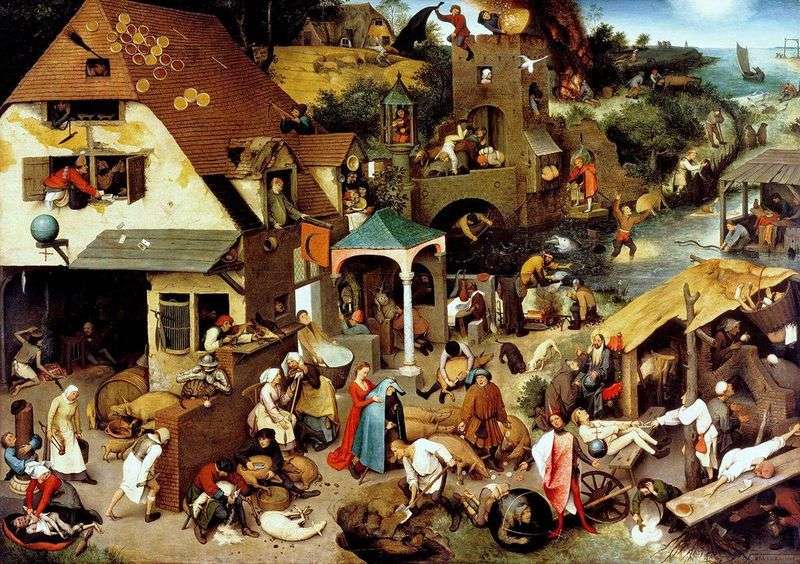 Flemish proverbs by Peter Brueghel
Flemish proverbs by Peter Brueghel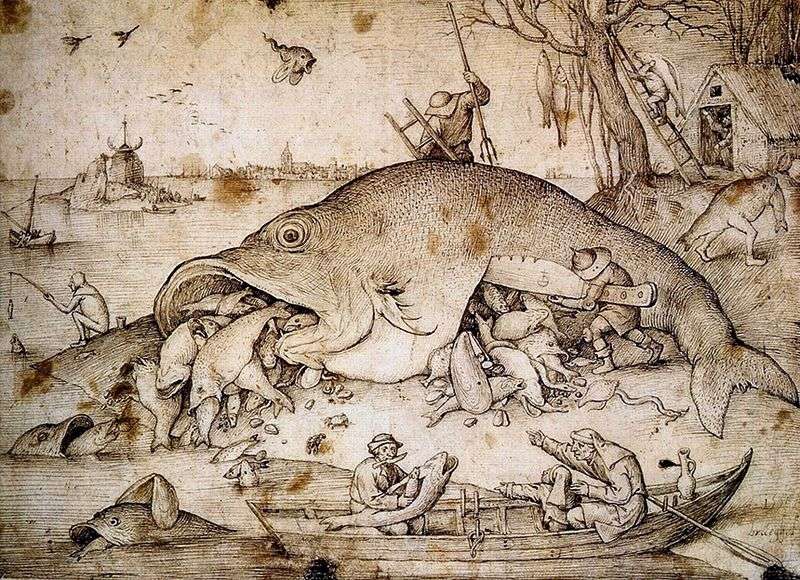 Big fish eat small by Peter Brueghel
Big fish eat small by Peter Brueghel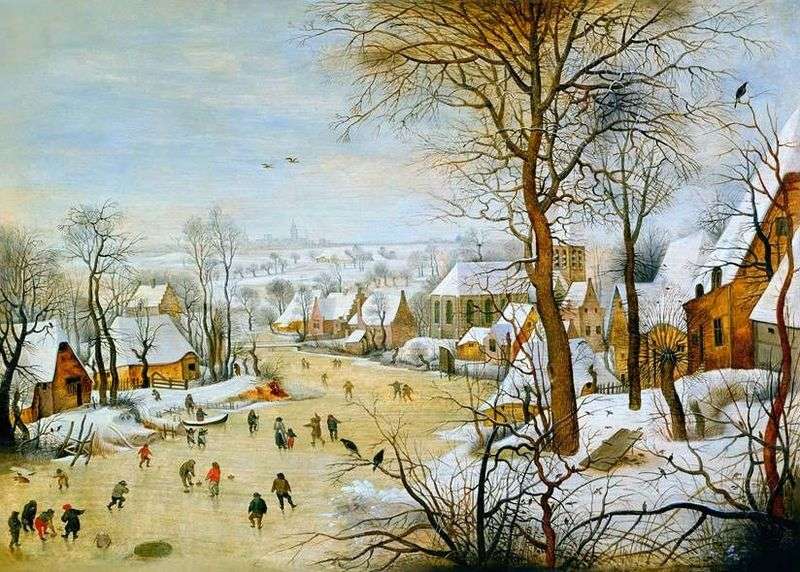 The Bird Trap by Peter Brueghel
The Bird Trap by Peter Brueghel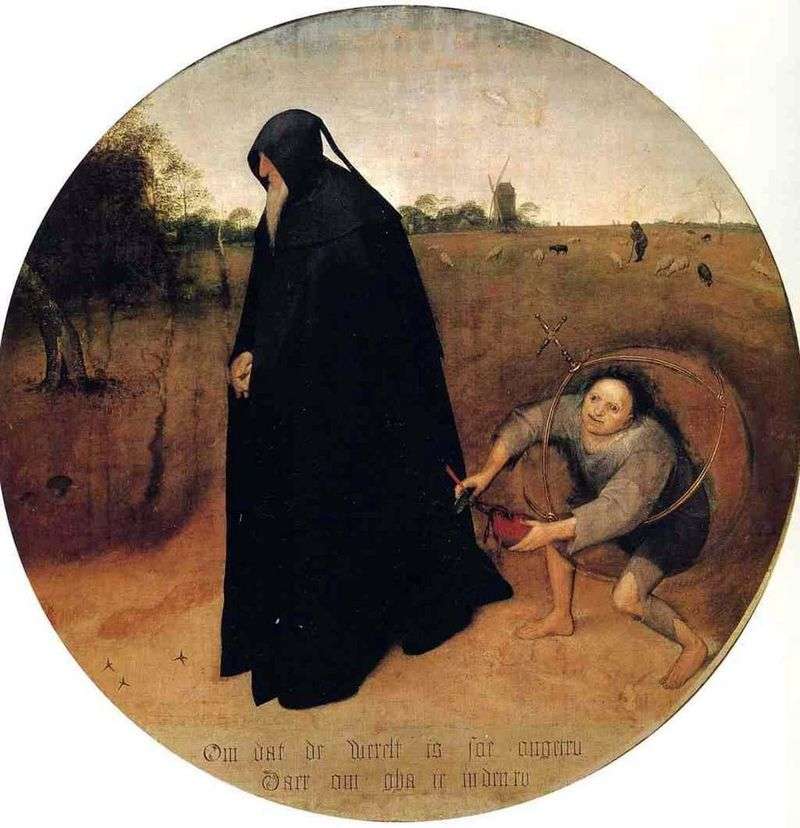 Misanthrope by Peter Brueghel
Misanthrope by Peter Brueghel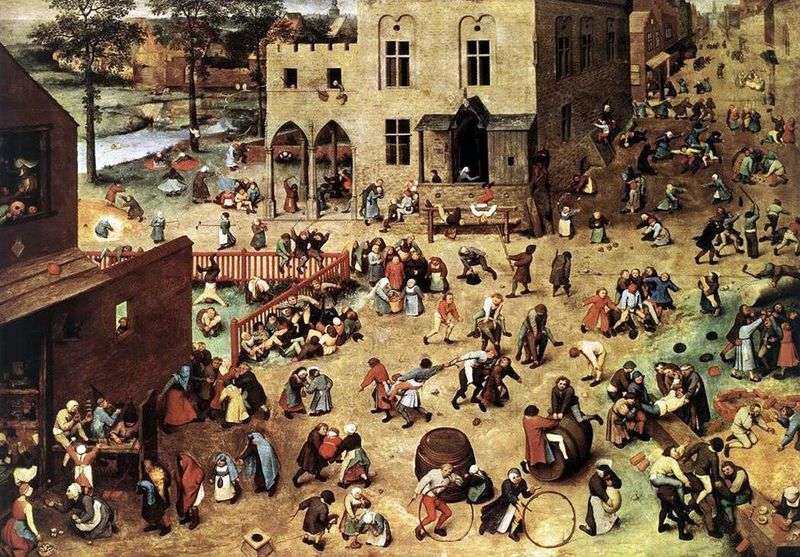 Children’s Games by Peter Brueghel
Children’s Games by Peter Brueghel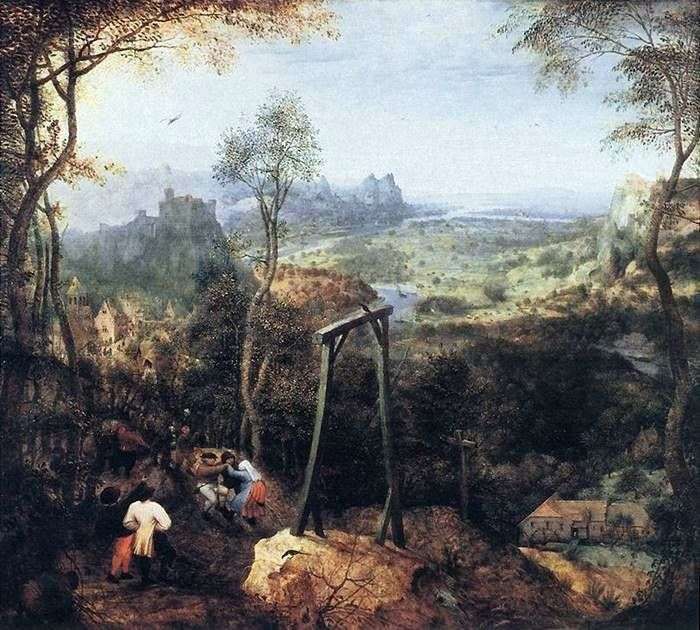 Magpie on the Gallows by Peter Brueghel
Magpie on the Gallows by Peter Brueghel